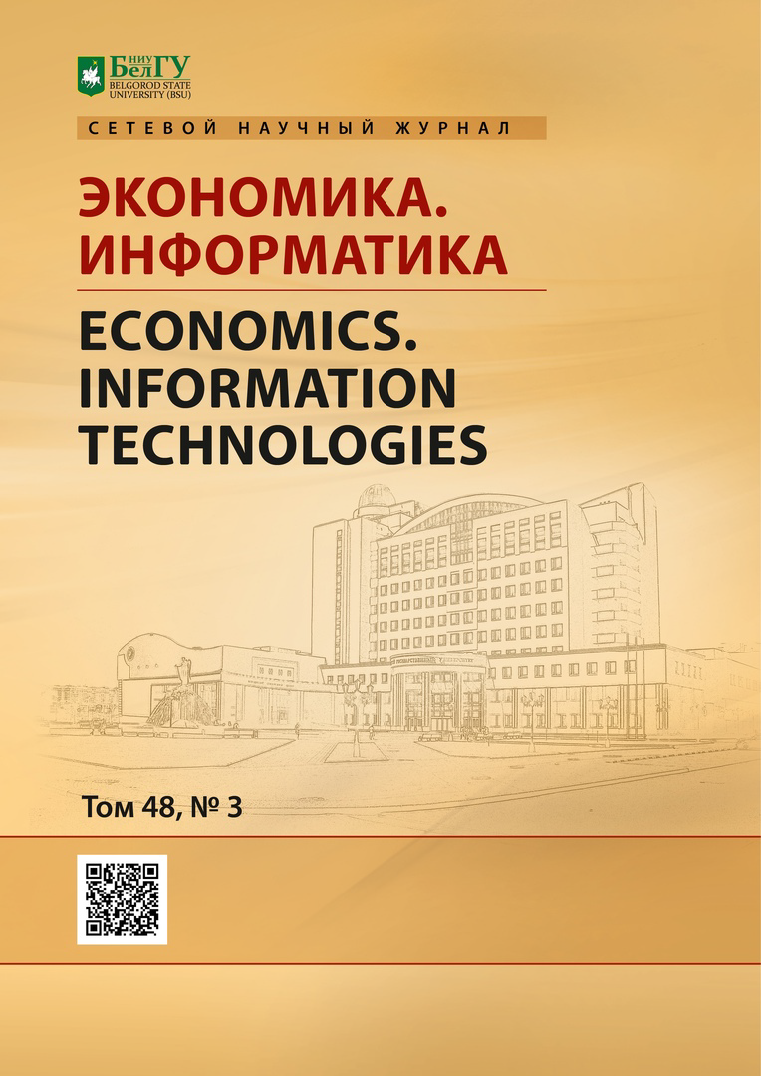Assessment of the effectiveness of tourism in the region, considering the involvement in the information space (on the example of the Kabardino-Balkarian Republic)
DOI:
https://doi.org/10.52575/2687-0932-2021-48-3-465-474Keywords:
efficiency, efficiency assessment, tourism, tourism services, tourism statistics, information societyAbstract
The processes of informatization and digitalization of the socio-economic space are studied from various positions and include many aspects. In the field of providing tourism services, it should also be noted the importance of the introduction of new technologies, their application and impact. Despite the fact that the problems of tourism development are sufficiently well covered in the works of modern scientists, the issues of assessing the impact of transformation processes associated with the transition to an information society on the development indicators of various fields of activity, including tourism, remain poorly researched. This is the reason for the formulation of the goal of this work, which consists in assessing the mutual influence of the effectiveness of the implementation of tourist activities and the level of development of the information society on the territory of a region. A hypothesis has been put forward that the development of tourism is reflected at the level of development of the information society in the region. Verification of this assumption was carried out by econometric methods by studying the relationship between socio-economic indicators of tourism development and indicators of the development of the information society in the region. As a result of the study, an integral indicator of the effectiveness of activities for the provision of tourist services in the region was calculated using the example of the Kabardino-Balkarian Republic and a final assessment was formulated. The results obtained complement the conceptual framework for analyzing the effectiveness of activities in the provision of tourism services and tourism in general.
Downloads
References
ГОСТ Р ИСО 9000-2015. Системы менеджмента качества. Основные положения и словарь ISO 9000:2015. Quality management systems. Fundamentals and vocabulary. Москва, Стандартинформ, 2015 год. Утвержден и введен в действие Приказом Федерального агентства по техническому регулированию и метрологии от 28 сентября 2015 г. № 1390-ст.
Федеральная служба государственной статистики. Мониторинг развития информационного общества в Российской Федерации. URL: https://rosstat.gov.ru/folder/14478 (дата обращения 08.01.21г.)
Сайт Федеральной службы государственной статистики по СКФО. URL: http://stavstat.gks.ru/statistics/kbrStat/ (дата обращения 08.01.21г.)
Портал Правительства Кабардино-Балкарии. Страница Министерства курортов и туризма КБР. URL: https://pravitelstvo.kbr.ru/oigv/minturizm/deyatelnost/ (дата обращения 10.03.21г.)
Аликаева М.В., Гурфова Р.В., Кетова Ф.Р. 2017. Принципы управления туристско-рекреационным кластером. Экономика и предпринимательство, 2 (1), (79–1): 473–477.
Бабич С.Г. 2017. Индексный анализ дифференциации регионов РФ по основным показа-телям инновационной деятельности. Статистика и экономика, 14 (2): 3–13.
Кетова Ф.Р. 2018. Современное состояние туристской сферы КБР. Стратегические изме-нения в сфере туризма и гостеприимства: поиск нового вектора развития. Материалы Всероссийской научно-практической конференции, г. Москва, Русайнс: 266–276.
Мезоэкономика развития: монография. 2011. Под редакцией члена-корреспондента РАН Г.Б. Клейнера. Москва, ЦЭМИ РАН, изд-во Наука, серия «Экономическая наука современной России», 804 c.
Морозова И.А., Шевченко С.А., Кузьмина Е.В. 2020. Исследование основных факторов устойчивости пространственного развития территорий с позиции системного подхода. Экономика устойчивого развития, 3: 76–83.
Морозов М.А., Морозова Н.С., Карпова Г.А., Хорева Л.В. 2014. Экономика туризма. Москва, Федеральное агентство по туризму, 320 с.
Порошина О.В. 2016. Оценка эффективности развития сферы туризма на основе целе-ориентированного подхода. Проблемы развития территорий, 1(81): 79–93
Alikaeva, М.V., М.S. Oborin and F.R. Ketova. 2019. Modelling of the brand promoting pro-cess for a resort and recreation destination using IDEF methodology. Revista Espacios digital, 6(40): 29.
Cornell University, INSEAD, and WIPO. 2020. The Global Innovation Index 2020: Who Will Finance Innovation? Ithaca, Fontainebleau, and Geneva. URL: https://www.globalinnovationindex. org/Home (дата обращения 10.03.21г.)
Abstract views: 449
Share
Published
How to Cite
Issue
Section
Copyright (c) 2021 ECONOMICS. INFORMATION TECHNOLOGIES

This work is licensed under a Creative Commons Attribution 4.0 International License.


